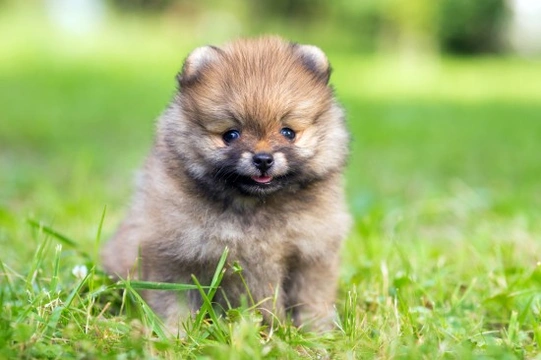
Top tips for picking the ideal small breed dog for you
If you have set your heart on owning a small breed of dog, there is certainly no shortage of different breeds and options available to you! People often assume that because a dog is physically small, they will also be exponentially easier to care for than a larger dog, but it is important to remember that every dog is an individual, and there can be significant personality differences between breeds.
If you have narrowed your search for the perfect dog down to only dogs that are around ankle height, read on to learn some important tips for picking the perfect small breed dog to join your family.
Your family situation
It is important of course that every member of your family is on board with the idea of getting a dog, and also that you are all more or less in agreement about the type of dog that you are looking to buy. As well as considering what type of dog will suit your family, it is also important to ensure that said dog will be happy within your family, and feel comfortable with the various members of it.
Very small, delicate dogs like the Chihuahua may not be a good choice for families with very young children, as they may feel threatened and stressed by the presence of lively toddlers that do not know how to handle a dog. Also, very lively, active kids might become frustrated with a small dog that is quiet in nature and likes to be left alone more often than they want to get involved in play.
Older children are usually fine to keep with dogs of any age and type, but it is important that they can live together in harmony, and that neither dog nor child feel pushed out or neglected in favour of the other!
Ultimately, you should look for a small dog that your child will actively bond with, so that the dog and the child can build a relationship of their own between them.
Temperament
Temperament is of course the most important consideration when deciding what type of dog you might like to own, and this is particularly true when choosing a little dog. Dogs from the terrier grouping will tend to be alert, intelligent, lively and into everything, while lap dog breeds such as the Shih Tzu will be more laid back, but can also be highly strung. Jack Russells and Yorkshire Terriers present a good balance between active, alert dogs and those that tend to get on well with children, while dogs like the Pug love to play and are highly entertaining.
Lifestyle and exercise
Smaller dogs may have shorter legs than their taller counterparts, but they still require exercise! Precisely how much will vary from dog to dog; the Jack Russell, for instance, has bags of energy and will happily live a very active life and not have problems keeping up with you, while the Lhasa Apso is rather quieter, and will be happy with more sedate walks on the lead without an undue amount of haring about.
Grooming and care
Short-coated small dog breeds such as the Pug and the French Bulldog have very easy to manage fur, requiring only minimal brushing and grooming. However, both of these breeds have short, squashed-looking faces, which may mean that you will need to clean and dry their facial folds on a daily basis.
The Lhasa Apso often has a very long, straight and flowing coat that needs daily brushing and grooming to prevent knots and tangles, while some smaller dogs will need regular trips to the grooming parlour to keep them in good condition.
Veterinary care
While any breed or type of dog will potentially need veterinary care for a health condition at some stage during their lives, some smaller dogs are prone to particular issues that may be associated with their small size, or result from genetically inherited conditions that are a particular trait of the breed.
It is vital to research issues such as these prior to buying, and identify if the breed or type of small dog that you are considering is considered to be at risk of any hereditary conditions.
The Pug dog, for instance, can potentially be prone to a relatively wide range of issues with their conformation and general health, while the Cavalier King Charles Spaniel has elevated risk factors for syringomelia.
Cost
Smaller dogs eat less than larger dogs of course, so you will certainly be able to make a saving in that area, but other than that, small dogs rarely prove to be less expensive in other areas than larger dogs. They still cost the same to vaccinate and acquire veterinary care for, and over the course of their lives, they will prove as expensive to keep and provide for as any larger dog, on the whole.



